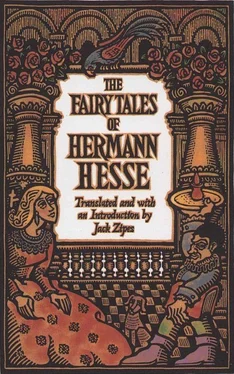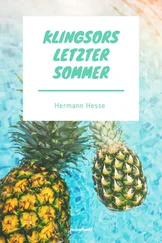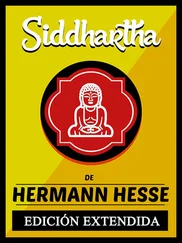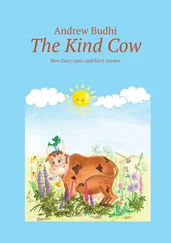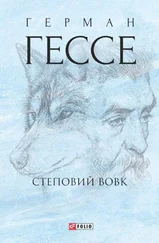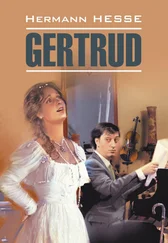Hermann Hesse - The Fairy Tales of Hermann Hesse
Здесь есть возможность читать онлайн «Hermann Hesse - The Fairy Tales of Hermann Hesse» весь текст электронной книги совершенно бесплатно (целиком полную версию без сокращений). В некоторых случаях можно слушать аудио, скачать через торрент в формате fb2 и присутствует краткое содержание. Год выпуска: 1995, ISBN: 1995, Издательство: Bantam Books, Жанр: Классическая проза, Сказка, на английском языке. Описание произведения, (предисловие) а так же отзывы посетителей доступны на портале библиотеки ЛибКат.
- Название:The Fairy Tales of Hermann Hesse
- Автор:
- Издательство:Bantam Books
- Жанр:
- Год:1995
- ISBN:9780553377767
- Рейтинг книги:5 / 5. Голосов: 1
-
Избранное:Добавить в избранное
- Отзывы:
-
Ваша оценка:
- 100
- 1
- 2
- 3
- 4
- 5
The Fairy Tales of Hermann Hesse: краткое содержание, описание и аннотация
Предлагаем к чтению аннотацию, описание, краткое содержание или предисловие (зависит от того, что написал сам автор книги «The Fairy Tales of Hermann Hesse»). Если вы не нашли необходимую информацию о книге — напишите в комментариях, мы постараемся отыскать её.
The Fairy Tales of Hermann Hesse — читать онлайн бесплатно полную книгу (весь текст) целиком
Ниже представлен текст книги, разбитый по страницам. Система сохранения места последней прочитанной страницы, позволяет с удобством читать онлайн бесплатно книгу «The Fairy Tales of Hermann Hesse», без необходимости каждый раз заново искать на чём Вы остановились. Поставьте закладку, и сможете в любой момент перейти на страницу, на которой закончили чтение.
Интервал:
Закладка:
But the forest climbed farther down from the mountains to the prairie. Lakes and rivers sprang up and dried out, and the forest moved on and gradually took over and covered the entire country, the remains of the old street walls, the palaces, the temples, and the museums. Foxes and pine marten, wolves and bears inhabited the isolated spot.
A young pine tree stood over one of the fallen palaces, not one stone of which could be seen. The pine had at one time been the most advanced messenger and precursor of the growing forest. Now, however, it looked out at the growth of young trees in front of it.
“We’re moving onward!” cried a woodpecker, who hammered on the trunk of a tree and regarded the growing forest and the glorious, green progress on earth with satisfaction.
Dr. Knoegle’s End
(1910)

Dr. Knoegle, a former high school teacher who had retired early from his profession and had devoted himself to private philological studies, would certainly never have come into contact with vegetarians and vegetarianism if signs of asthma and rheumatism had not at one time compelled him to follow a vegetarian diet. The result was so successful that, from then on, the teacher spent several months every year in some kind of vegetarian health spa or small hotel, mainly in the south. So in spite of his aversion to everything unusual and strange, he began mixing in circles and with individuals with whom he normally did not associate. Nor did he like their unavoidable visits to his hometown, even though they were infrequent.
For many years, Dr. Knoegle spent spring and early summer and even the autumn months in one of the many vegetarian hotels on the coast of southern France or at Lake Maggiore. He became acquainted with many different people at these places and accustomed to many things, such as people walking barefoot, long-haired apostles, fanatics who fasted all the time, and vegetarian gourmands. He made some good friends, especially among the latter, and he himself, whose ailments prevented him more and more from enjoying heavy meals, developed into a modest epicurean in the domain of vegetables and fruit. There was no way that he could be satisfied with your ordinary endive salad, and he would never have mistaken a California orange for an Italian. Otherwise, he did not take a great interest in vegetarianism, for to him it was only a cure, and if it appealed to him at all, it was sometimes due to the splendid linguistic innovations in this area that, as a philologist, he considered to be remarkable. There were vegetarians, vegetarianists, vegetabilitarians, the raw purists, the pulpists, and the mixed vegetarians.
According to the linguistic usage of the initiates, the doctor himself belonged to the mixed vegetarians, because he ate not only fruit and raw food but also cooked vegetables and even dairy products. It did not escape his notice that this diet was an abomination for true vegetarians, above all for purists, who observed a strict code of eating. However, he kept his distance from the fanatical debates conducted by disciples of true vegetarianism, and he demonstrated his status as a mixed vegetarian only through his actions, whereas many acquaintances — namely the Austrians — boasted of their particular status on their business cards.
As I said, Dr. Knoegle did not exactly fit in with these people. With his peaceful red face and broad body, he already looked much different from the disciples of pure vegetarianism, who were mainly lean and ascetic types, often dressed in fantastic clothes. Many had hair that flowed over their shoulders, and they went through life as fanatics, followers of a religion, and martyrs to their special ideals. Dr. Knoegle was a philologist and patriot. He did not support their ideas of humanity and social reform; nor did he share the strange lifestyles of his co-vegetarians. His appearance was such that the porters of the cosmopolitan hotels, who waited at the railroad stations and docks in Locarno and Pallanza and normally could smell every kind of “cabbage-head apostle” from a distance, would confidently recommend their hotels to him. They were always greatly astonished, however, when the man, who looked so respectable, gave his luggage to the porter of the Thalysia or Ceres hotel, or to the donkey master of the Monte Verita.
Nonetheless, Dr. Knoegle gradually became accustomed to the strange surroundings and felt at ease there. He was an optimist, almost an artist of life, and found many a peace-loving, red-cheeked friend among the plant-eaters of various countries. Moreover, he could sit side by side with them, consume his fresh salad and peach tranquilly, and have an agreeable table conversation, without having a fanatic of strict observance reproach him for his mixed diet or a rice-chewing Buddhist reprimand him for his religious indifference.
One time Dr. Knoegle happened to hear about the founding of the International Vegetarian Society, first through the newspapers and then through direct communication from his circle of acquaintances. This new society had acquired a tremendous piece of land in Asia Minor and had invited all the vegetarian disciples of the world to settle there permanently or to visit at reasonable prices. This undertaking was initiated by an idealistic group of German, Dutch, and Austrian plant-eaters, whose aspirations constituted a kind of vegetarian zionism, for they aimed at recruiting followers and believers of their faith to establish their own country with their own government somewhere in the world that already had the natural conditions for the life that they envisioned as ideal. The settlement in Asia Minor was just the beginning of their mission, for their appeals were addressed to “all the friends of the vegetarian and vegetabilitarian lifestyle, of the nudist culture, and the movement to reform life,” and they promised so much and sounded so wonderful that not even Dr. Knoegle could resist the nostalgic music from paradise. He sent in his registration form to be a guest there in the coming fall.
The land was supposed to provide plenty of fruit and vegetables. The kitchen of the large main house was directed by the author of Ways to Paradise , and many people felt it was particularly nice that they could lead their lives there without being subjected to the mockery of the crude world. Every kind of vegetarianism and dress reform was permitted, and there were no prohibitions except those against meat and alcohol.
Strange refugees came from all over the world, partly to find peace and comfort in a life suitable to their nature in Asia Minor, and partly to earn a living and profit from those people eager for salvation. Runaway priests and teachers from all kinds of churches came, phony Hindus, occultists, language teachers, masseuses, mesmerists, magicians, and faith healers. This small group of eccentric people consisted less of swindlers and malicious types than of harmless petty con artists, for there were no great profits to be made and most were seeking a means to earn their livelihood — which need not be much for a plant-eater living in a southern country.
The majority of the people who had derailed themselves from Europe and America carried with them one single vice that many vegetarians had — they had an aversion to work. They did not want gold and pleasure, nor power and amusement. What they wanted most of all was to lead their modest lives without work and annoyances. Many of them had traversed Europe on foot numerous times as unassuming doorknob cleaners in the homes of well-to-do people who shared their ideas, or as preaching prophets and miracle doctors. When Dr. Knoegle arrived in Quisisana, he encountered many a former acquaintance who had visited him every now and then in Leipzig as a harmless beggar.
Читать дальшеИнтервал:
Закладка:
Похожие книги на «The Fairy Tales of Hermann Hesse»
Представляем Вашему вниманию похожие книги на «The Fairy Tales of Hermann Hesse» списком для выбора. Мы отобрали схожую по названию и смыслу литературу в надежде предоставить читателям больше вариантов отыскать новые, интересные, ещё непрочитанные произведения.
Обсуждение, отзывы о книге «The Fairy Tales of Hermann Hesse» и просто собственные мнения читателей. Оставьте ваши комментарии, напишите, что Вы думаете о произведении, его смысле или главных героях. Укажите что конкретно понравилось, а что нет, и почему Вы так считаете.
